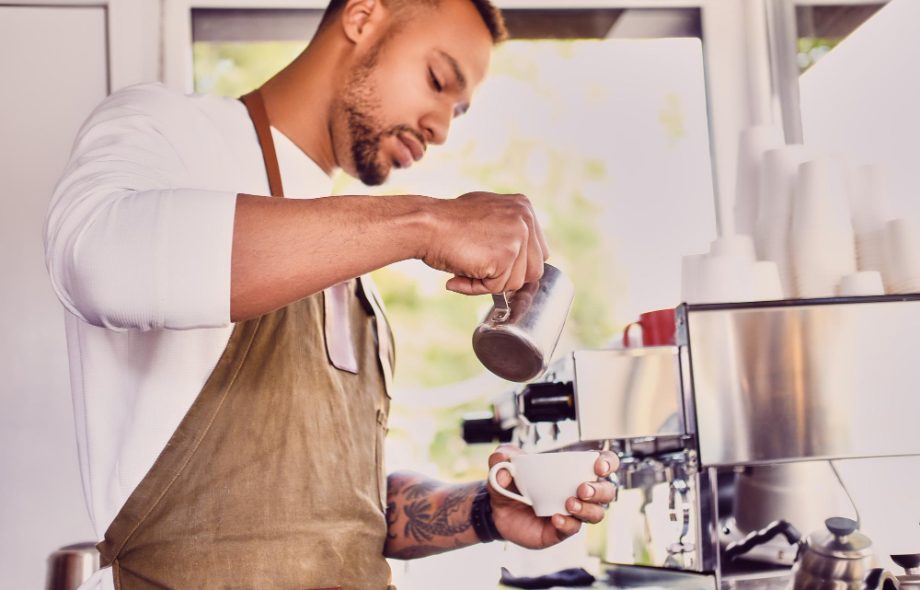Coffee is more than just a morning ritual for many it’s an art form, a science, and a cultural experience. Barista courses provide aspiring coffee enthusiasts and professionals with the skills and knowledge needed to create exceptional coffee while opening doors to new career opportunities. If you’re passionate about coffee, here’s why investing in a barista course is a decision worth considering.
Mastering the Fundamentals of Coffee
A comprehensive barista course introduces you to the basics of coffee, from its origins to its brewing techniques. You’ll learn about:
- Coffee Origins: Understanding where coffee comes from, the different types of beans, and how growing conditions influence flavor.
- Roasting Profiles: Exploring how varying levels of roasting impact the taste and aroma of coffee.
- Brewing Methods: Gaining hands-on experience with espresso machines, pour-over setups, French presses, and more.
These foundational skills ensure that you’re well-equipped to create consistently high-quality coffee.
Developing Technical Expertise
Operating a coffee machine requires more than pressing buttons. Barista courses delve into the technical aspects of coffee making, including:
- Espresso Extraction: Learning how to pull the perfect shot with precise timing and pressure.
- Milk Texturing: Mastering the art of creating smooth, velvety microfoam for lattes and cappuccinos.
- Equipment Maintenance: Understanding how to clean and maintain coffee machines and grinders to ensure optimal performance.
These technical skills not only enhance your efficiency but also improve the quality of your beverages.
Gaining Confidence in Latte Art
Latte art is a delightful way to showcase your creativity and add a personal touch to each cup. Barista courses teach you the techniques needed to craft intricate designs such as hearts, rosettas, and tulips. By practicing milk frothing and pouring methods, you’ll develop the confidence to create stunning coffee presentations that impress customers and friends alike.
Enhancing Your Sensory Skills
A significant aspect of being a skilled barista is the ability to identify and appreciate the subtle flavors and aromas in coffee. Barista courses include sensory training sessions where you learn to:
- Distinguish between various flavor notes, such as fruity, nutty, or floral.
- Detect defects or imbalances in coffee quality.
- Develop your palate for pairing coffee with food or desserts.
Refining your sensory skills allows you to create beverages that delight even the most discerning coffee drinkers.
Expanding Career Opportunities
For those interested in a career in the coffee industry, completing a barista course can open many doors. Employers value candidates who have formal training and certifications, as it demonstrates professionalism and dedication. Possible career paths include:
- Coffee Shop Barista: Serving expertly crafted beverages in local cafes or high-end coffeehouses.
- Coffee Roaster: Understanding the roasting process to create unique coffee profiles.
- Trainer or Consultant: Sharing your expertise by teaching others or advising café owners on operations.
- Coffee Competitions: Participating in national or international barista championships to showcase your skills.
With a strong foundation from a barista course, you’ll stand out in a competitive job market and have the confidence to pursue diverse roles within the industry.
Building Customer Service Skills
Exceptional customer service is a hallmark of successful baristas. A barista course often includes training in:
- Effective Communication: Understanding customer preferences and suggesting beverages that match their tastes.
- Speed and Efficiency: Balancing high-quality preparation with quick service during busy periods.
- Problem-Solving: Handling equipment malfunctions or addressing customer complaints professionally.
These interpersonal skills are vital for creating positive experiences and building loyal customer bases.
Exploring Advanced Brewing Techniques
Barista courses often go beyond basic espresso-making to explore advanced brewing methods. Learning techniques such as cold brew, siphon brewing, and nitro coffee preparation enables you to offer unique beverages and cater to a wider audience. This versatility enhances your ability to innovate and stay ahead in a constantly evolving industry.
Networking Opportunities
Attending a barista course introduces you to like-minded individuals who share your passion for coffee. These connections can lead to:
- Collaborative Learning: Sharing tips and techniques with fellow participants.
- Mentorship: Gaining insights from experienced instructors and industry professionals.
- Job Opportunities: Discovering roles through networking with peers and trainers.
Building a strong network within the coffee community can support your growth and provide opportunities to advance your career.
Improving Problem-Solving Abilities
Working as a barista often involves tackling unexpected challenges, such as equipment issues or fluctuating customer demands. Barista courses simulate real-world scenarios to help you develop:
- Critical Thinking: Analyzing problems and finding practical solutions quickly.
- Adaptability: Adjusting your techniques to maintain quality under varying conditions.
- Teamwork: Collaborating with others to ensure smooth operations.
These problem-solving skills are invaluable in both professional and personal contexts.
Boosting Personal Confidence
Mastering new skills and receiving certification from a barista course can significantly boost your confidence. Whether you’re preparing coffee for customers or hosting a tasting session for friends, your newfound expertise will shine through. Confidence in your abilities also helps you take on challenges and pursue opportunities with enthusiasm.
Cultivating a Deeper Appreciation for Coffee
A barista course doesn’t just teach you how to make coffee; it immerses you in the rich history and culture of this beloved beverage. You’ll learn about:
- Global Coffee Traditions: Exploring how different cultures prepare and enjoy coffee.
- Sustainable Practices: Understanding the importance of ethical sourcing and eco-friendly methods.
- Innovation: Keeping up with trends and advancements in the coffee industry.
This deeper understanding fosters a greater respect for coffee and its impact on communities worldwide.
Conclusion
Taking a barista course is an investment in yourself and your passion for coffee. From mastering technical skills to expanding career opportunities, the benefits are vast and impactful. Whether you aim to pursue a professional career or simply want to enhance your coffee-making abilities at home, a barista course provides the tools, knowledge, and confidence to excel in the art of coffee making. With dedication and practice, you can transform your love for coffee into a rewarding and fulfilling experience.
 :
https://www.pinterest.com/tinyfpcoffee/
:
https://www.pinterest.com/tinyfpcoffee/












